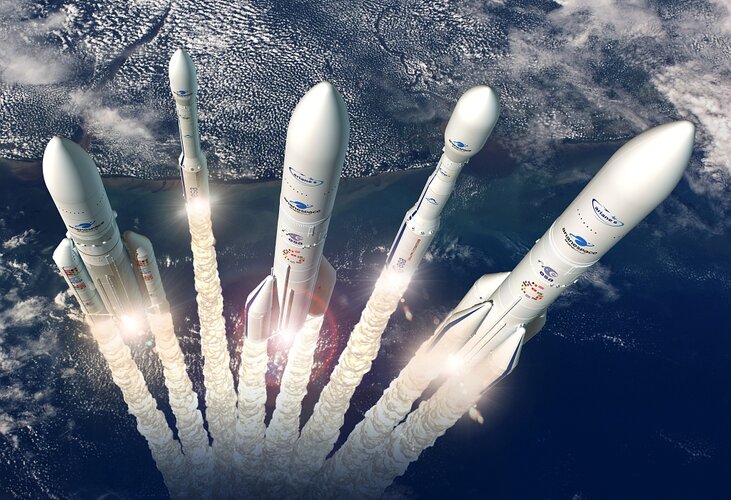'Dune' brings galactic-scale blockbuster to Venice
Sunday, 05 September 2021 03:15 Giant worms and inter-planetary battles rocked the Venice Film Festival on Friday as "Dune", one of the most hotly anticipated blockbusters in years, was finally set for its world premiere.
It brought a cavalcade of A-listers to the city's glitzy Lido island, along with fans packing the waterfront for the arrival of Timothee Chalamet, Zendaya, Oscar Isaac, Josh Brolin and Javier Bardem.
Giant worms and inter-planetary battles rocked the Venice Film Festival on Friday as "Dune", one of the most hotly anticipated blockbusters in years, was finally set for its world premiere.
It brought a cavalcade of A-listers to the city's glitzy Lido island, along with fans packing the waterfront for the arrival of Timothee Chalamet, Zendaya, Oscar Isaac, Josh Brolin and Javier Bardem. Rocket 'terminated' in fiery explosion over Pacific Ocean
Friday, 03 September 2021 21:09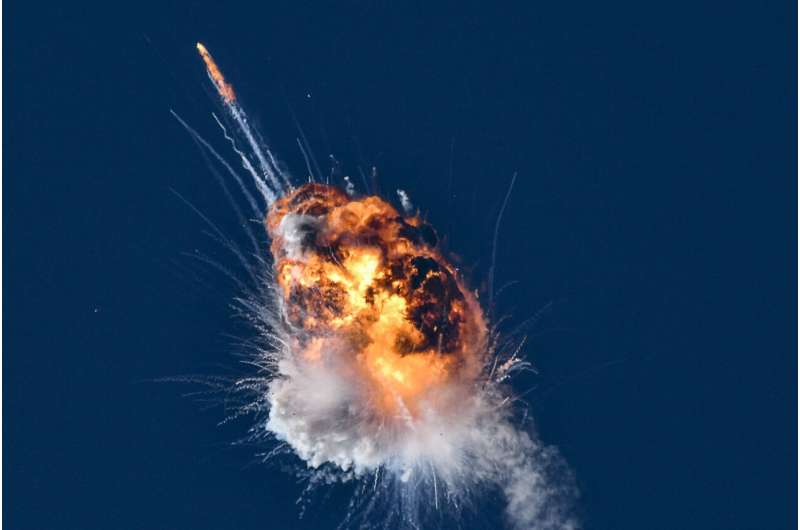
Op-ed | While satellites are cool, military space networks must focus on interoperability
Friday, 03 September 2021 15:00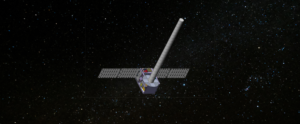
How satellites are stitched together in a highly complex, multi-band and multi-network system needs to be at the forefront of SDA's Transport Layer discussion.
.
Holding stellar nurseries in your hands
Friday, 03 September 2021 13:10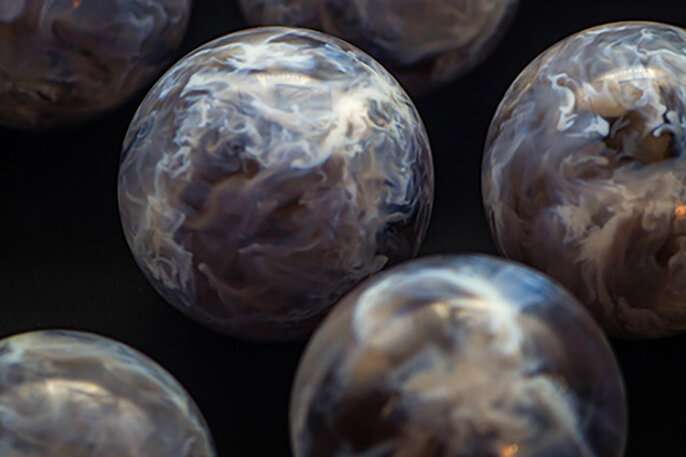
Week in images: 30 August - 3 September 2021
Friday, 03 September 2021 12:05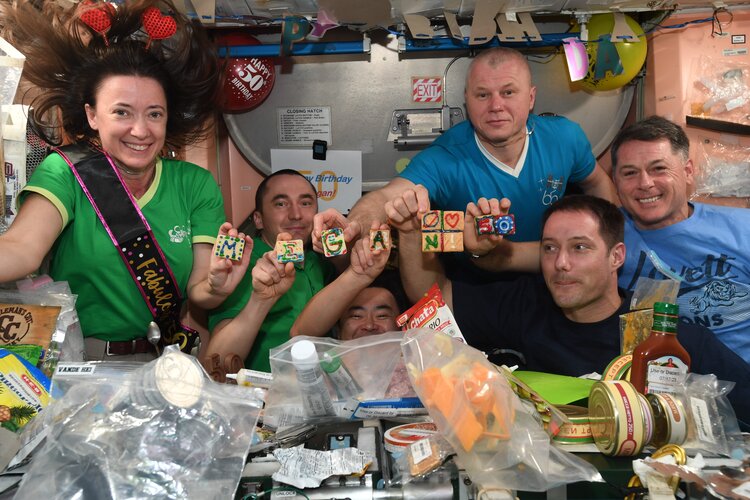
Week in images: 30 August - 3 September 2021
Discover our week through the lens
ESA Council agrees resolution on Ariane 6 and Vega-C exploitation and future space transportation
Friday, 03 September 2021 08:00Drop tests for touchdown on Mars
Friday, 03 September 2021 08:00 Video:
00:06:16
Video:
00:06:16
The ExoMars team have performed important parachute drop tests as crucial preparation for a safe touchdown on Mars in 2023. The European Rosalind Franklin rover will search for signs of past life beneath the surface of Mars with its unique two metre drill and onboard laboratory. The Russian surface science platform Kazachok will study the environment at the landing site. Landing on Mars is always a challenging endeavour and all possible parameters are taken into account.
More information on ExoMars: http://www.esa.int/exomars
Meteosat Gen 3 takes major step towards its first launch
Friday, 03 September 2021 04:11 After many technical and programmatic challenges, the first satellite of the next generation of the Meteosat family has taken a major step towards its first flight, currently scheduled for launch in autumn 2022.
Following on from the success of the first and second generation of Meteosat satellites, the Meteosat Third Generation (MTG) will soon take over the reins to ensure the continuity
After many technical and programmatic challenges, the first satellite of the next generation of the Meteosat family has taken a major step towards its first flight, currently scheduled for launch in autumn 2022.
Following on from the success of the first and second generation of Meteosat satellites, the Meteosat Third Generation (MTG) will soon take over the reins to ensure the continuity Satellite observes power outages in New Orleans
Friday, 03 September 2021 04:11 Three days after Hurricane Ida brought fierce wind, rain, and storm surges to Louisiana, large swaths of the state are enduring electric power blackouts due to downed lines and damaged transmission towers. According to news sources, many people are also going without access to running water and gasoline due to damaged infrastructure.
A team of scientists from NASA's Goddard Space Flight Ce
Three days after Hurricane Ida brought fierce wind, rain, and storm surges to Louisiana, large swaths of the state are enduring electric power blackouts due to downed lines and damaged transmission towers. According to news sources, many people are also going without access to running water and gasoline due to damaged infrastructure.
A team of scientists from NASA's Goddard Space Flight Ce Firefly Aerospace rocket Alpha explodes after California liftoff
Friday, 03 September 2021 04:11 Firefly's Alpha 1 exploded minutes after lifting off from the California launch pad at Vandenberg AFB on Thursday.
The Alpha rocket was "terminated" over the Pacific Ocean shortly after its 6:59 p.m. liftoff from Vandenberg Space Force Base, according to a base statement.
Firefly said an "anomaly" occurred during the first-stage ascent that "resulted in the loss of the vehicle" about
Firefly's Alpha 1 exploded minutes after lifting off from the California launch pad at Vandenberg AFB on Thursday.
The Alpha rocket was "terminated" over the Pacific Ocean shortly after its 6:59 p.m. liftoff from Vandenberg Space Force Base, according to a base statement.
Firefly said an "anomaly" occurred during the first-stage ascent that "resulted in the loss of the vehicle" about BlackSky secures investment from Palantir
Friday, 03 September 2021 04:11 BlackSky announced Wednesday that Palantir Technologies Inc. has committed to making an equity investment in BlackSky, which is scheduled to close after the completion of BlackSky's business combination with Osprey Technology Acquisition Corp ("Osprey"). Following the successful completion of a joint pilot program between BlackSky and Palantir, this investment signifies the strengthening of a st
BlackSky announced Wednesday that Palantir Technologies Inc. has committed to making an equity investment in BlackSky, which is scheduled to close after the completion of BlackSky's business combination with Osprey Technology Acquisition Corp ("Osprey"). Following the successful completion of a joint pilot program between BlackSky and Palantir, this investment signifies the strengthening of a st Ball Aerospace selected for two Landsat next studies
Friday, 03 September 2021 04:11 Ball Aerospace was selected by NASA for two Landsat Next architecture studies: Landsat Next Instrument Study - Constellation Satellite Concept and Landsat Next Instrument - Single Satellite Concept.
The two six-month studies will look at instrument architectures and designs for the next generation of Landsat.
"Users around the world rely on the continuity and reliability of the Lands
Ball Aerospace was selected by NASA for two Landsat Next architecture studies: Landsat Next Instrument Study - Constellation Satellite Concept and Landsat Next Instrument - Single Satellite Concept.
The two six-month studies will look at instrument architectures and designs for the next generation of Landsat.
"Users around the world rely on the continuity and reliability of the Lands FAA grounds Virgin Galactic amid spaceflight 'mishap' probe
Friday, 03 September 2021 02:22 The Federal Aviation Administration on Thursday said it grounded Virgin Galactic amid an investigation of its July launch into space, which went off trajectory.
The agency said the VSS Unity, a SpaceShipTwo spacecraft, deviated from its course as it returned to Spaceport America in New Mexico on July 11.
"Virgin Galactic may not return the SpaceShipTwo vehicle to flight until the
The Federal Aviation Administration on Thursday said it grounded Virgin Galactic amid an investigation of its July launch into space, which went off trajectory.
The agency said the VSS Unity, a SpaceShipTwo spacecraft, deviated from its course as it returned to Spaceport America in New Mexico on July 11.
"Virgin Galactic may not return the SpaceShipTwo vehicle to flight until the DLR Lampoldshausen prepares P5 test stand for the technologies of the future
Friday, 03 September 2021 02:22 The German Aerospace Center (Deutsches Zentrum fur Luft- und Raumfahrt; DLR) is preparing a central component of its extensive test infrastructure for the future by expanding the European Space Agency (ESA) P5 large-scale test stand at the DLR site in Lampoldshausen. This means that the next generation of space propulsion systems can also be tested under flexible and reliable conditions.
T
The German Aerospace Center (Deutsches Zentrum fur Luft- und Raumfahrt; DLR) is preparing a central component of its extensive test infrastructure for the future by expanding the European Space Agency (ESA) P5 large-scale test stand at the DLR site in Lampoldshausen. This means that the next generation of space propulsion systems can also be tested under flexible and reliable conditions.
T German Space Agency Chief says will discuss Lunar base project with Roscosmos
Friday, 03 September 2021 02:22 The head of the German Space Agency at DLR, Walther Pelzer, has told Sputnik he plans to discuss the International Lunar Research Station (ILRS) initiative with Roscosmos in an upcoming meeting that he hopes will be attended by its head Dmitry Rogozin.
In March, Russia reaffirmed its lunar exploration ambitions by signing a memorandum on cooperation with China's National Space Administrati
The head of the German Space Agency at DLR, Walther Pelzer, has told Sputnik he plans to discuss the International Lunar Research Station (ILRS) initiative with Roscosmos in an upcoming meeting that he hopes will be attended by its head Dmitry Rogozin.
In March, Russia reaffirmed its lunar exploration ambitions by signing a memorandum on cooperation with China's National Space Administrati 
